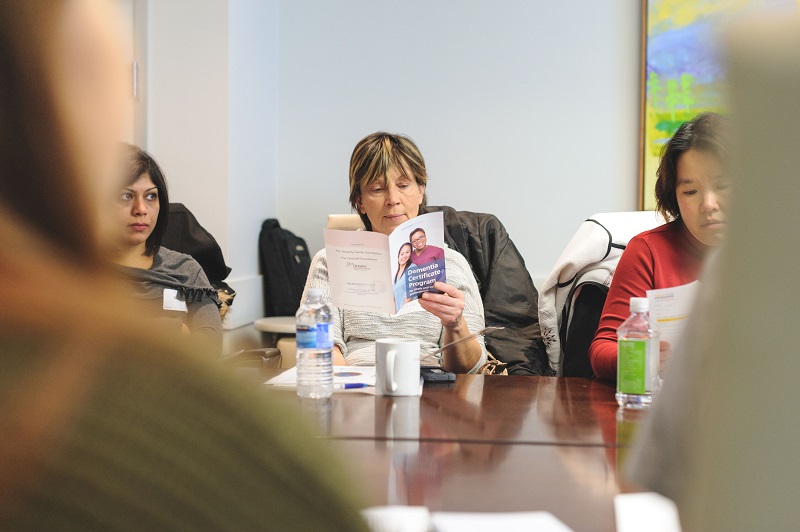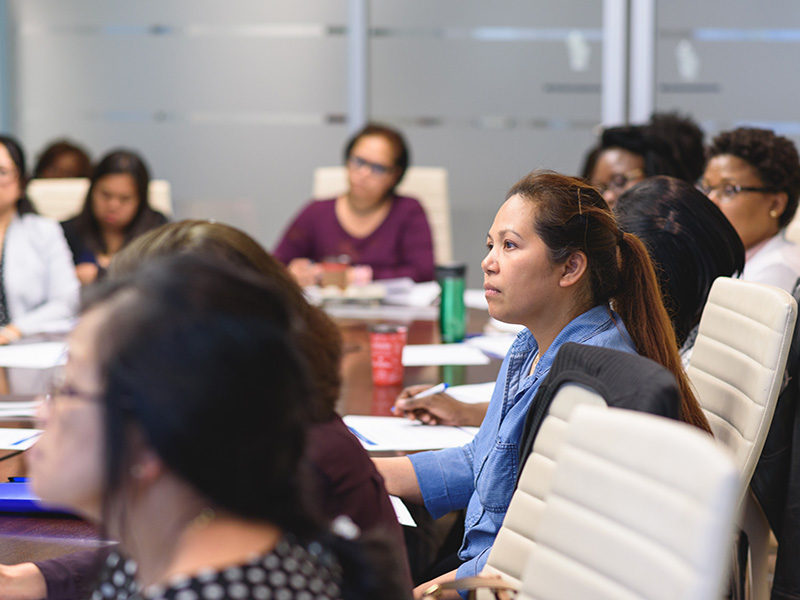Education Team at Alzheimer Society of Toronto
Date: March 4, 2026
Time: 12:43 am
Education Team at Alzheimer Society of Toronto
Events from this organizer

March 10 @ 10:00 am - 1:00 pm
Palliative Care in Dementia Program
This training program is aimed at enhancing the knowledge of frontline staff in caring for people with dementia using a palliative care approach. This program focuses on promoting quality of life and comfort for individuals living with dementias and their families, with particular emphasis on late stage and end of life.
Audiences:

March 21 @ 9:00 am - 12:00 pm
Dementia Foundations
This 3-hour course will provide you with a foundation of dementia, enabling you to enhance your knowledge in providing quality care for persons living with dementia.
Audiences:

March 27 @ 9:00 am - 5:00 pm
Gentle Persuasive Approaches (GPA®) Training
Alzheimer Society of Toronto Head Office 20 Eglinton Ave West, 16th floor, Toronto, Ontario, CanadaGPA Basics is a 4 module evidence-based education session designed for team members who care for older adults who display responsive behaviours associated with dementia.
Audiences:
April 9 @ 7:00 pm - 8:00 pm
EASE Session 1: Supporting the Symptoms of Dementia
The E.A.S.E program is a 4-session program developed for PSWs currently working with persons living with dementia.
In this session we explore the symptoms of dementia, what they may look like and the impact they can have when giving support to person’s living with dementia.
Cost: Free
Audiences:
April 11 @ 9:00 am - 4:00 pm
U-First!® (for Health Care Professionals)
U-First!® is a training program that helps non-registered health care providers develop a common knowledge base, language, values and approach to caring for people with Alzheimer’s disease and cognitive impairment by understanding the person and associated behaviour changes, and working as a team to develop individualized support strategies.
Cost: $85.00
Audiences:

April 16 @ 9:00 am - 12:00 pm
Dementia Foundations
This 3-hour course will provide you with a foundation of dementia, enabling you to enhance your knowledge in providing quality care for persons living with dementia.
Audiences:
April 16 @ 7:00 pm - 8:00 pm
EASE Session 2: Supporting Responsive Behaviours
The E.A.S.E program is a 4-session program developed for PSWs currently working with persons living with dementia.
This session explores at how a PLWDs past can dictate and influence behaviours in the present.
Cost: Free
Audiences:

April 18 @ 9:00 am - 5:00 pm
Gentle Persuasive Approaches (GPA®) Training
Alzheimer Society of Toronto Head Office 20 Eglinton Ave West, 16th floor, Toronto, Ontario, CanadaGPA Basics is a 4 module evidence-based education session designed for team members who care for older adults who display responsive behaviours associated with dementia.
Audiences:
April 23 @ 7:00 pm - 8:00 pm
EASE Session 3: Tips in Supporting People with Dementia
The E.A.S.E program is a 4-session program developed for PSWs currently working with persons living with dementia.
It is empowering to have a tool belt of resources at our fingertips. In this session we explore various methods we can use to provide a positive approach to interaction.
Cost: Free
Audiences:
April 30 @ 9:00 am - 5:00 pm
Gentle Persuasive Approaches (GPA®) Training
Alzheimer Society of Toronto Head Office 20 Eglinton Ave West, 16th floor, Toronto, Ontario, CanadaGPA Basics is a 4 module evidence-based education session designed for team members who care for older adults who display responsive behaviours associated with dementia.
Cost: $87.00
Audiences:
April 30 @ 7:00 pm - 8:00 pm
EASE Session 4: T.R.U.S.T. in Dementia Care
The E.A.S.E program is a 4-session program developed for PSWs currently working with persons living with dementia.
Persons we work with may exhibit behaviours that trigger a response in our own selves. In this session we explore coping strategies
Cost: Free
Audiences:
May 5 @ 9:00 am - 5:00 pm
Gentle Persuasive Approaches (GPA®) Training
Mid-Scarborough Hub 2658 Eglinton Ave E, Scarborough, Ontario, CanadaGPA Basics is a 4 module evidence-based education session designed for team members who care for older adults who display responsive behaviours associated with dementia.
Cost: $87.00
Audiences:
